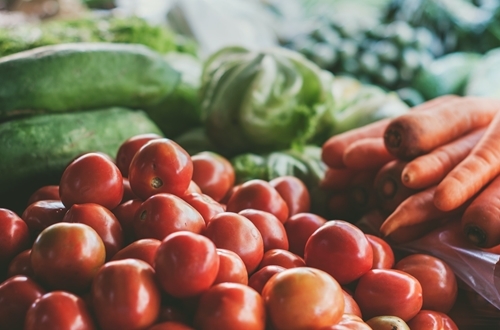Written by Joe Stanley, Head of Training and Partnerships, GWCT Allerton Project
3 Minute Read

The GWCT welcomes the scale and scope of Henry Dimbleby’s National Food Strategy – there can be no doubt that our diets, the way in which we produce our food and its impact on the environment are all inextricably linked and for too long all have been left almost entirely to the unloving care of the free markets, which place far too little value on good diets, sustainable farming practices and thriving, biodiverse ecosystems.
For thirty years the GWCT’s Allerton Project – a working demonstration farm in Loddington, Leicestershire - has been at the forefront of research into optimising nature-friendly farming systems alongside productive agricultural food production, and we were delighted to host Mr Dimbleby during the course of his deliberations. As such, we are pleased to see many of the recommendations in Part Two of his strategy. On those specifically relating to land use, we agree that at a time of unprecedented change for the industry, farmers require some certainty above all else, and therefore welcome the call to guarantee the budget for agricultural payments until at least 2029. Farming operates to very long timescales, and such a guarantee will enable farmers to invest in nature friendly farming with confidence in the coming years through ELM and other schemes as direct payments are withdrawn.
We also welcome the recommendations on trade; it’s self-evident that government cannot ask British farmers to operate to ever-higher levels of environmental, welfare and ethical standards without setting similar expectations of food to be imported from abroad. This would do nothing except undercut our world-leading production standards at home and create a two-tier food system that would risk not only driving high-quality domestic production to the wall but also merely offshoring our environmental footprint abroad and reward environmentally destructive practices beyond our shores.
We broadly welcome a review into our national land use framework; as a nation, we need to take stock of national priorities and factor both climate and biodiversity into our thinking in a way that has not previously been the case. It’s doubtless true that there is room for an optimisation of how we use our land, but we would caution against too broad-brush an approach in categorising entire landscapes as unsuitable for food production or suitable only for reforestation in an attempt to sequester carbon. It must be considered that some of our least productive farmland is also home to some of our most delicate, highly biodiverse ecosystems which have evolved in symbiosis with current land use practices: when it comes to natural regeneration or afforestation, it must very much be a case of the right tree in the right place rather than focussing on the narrow metric of calories produced/hectare, or we risk losing more than we gain. It must also be remembered that there is huge potential to store carbon and restore biodiversity in even the most productive farmed landscapes.
Finally, we welcome the report’s acknowledgement that grazed livestock are a vital element to both healthy soils and, in many cases, healthy ecosystems, and also that here in the UK we produce some of the most climate-friendly meat and dairy in the world. As the report points out, there is still much that can be done to further improve our production techniques – such as research and investment into methane-reducing feed additives – but we would sound a note of caution over an arbitrary target to reduce meat consumption. What we know is that we need more livestock in our farming system in a return to more traditional mixed landscapes, and that meat and dairy are an essential part of a healthy diet. Our focus should be on reducing our consumption of unsustainably produced meat produced in the ashes of the world’s rainforests or through the unsustainable overuse of antibiotics while promoting ourselves as world-leaders in the production of healthy, climate-friendly meat and dairy.
Henry Dimbleby’s Food Strategy is an ambitious, nuanced and provocative document that deserves a wide audience. We hope it will be carefully studied by government.